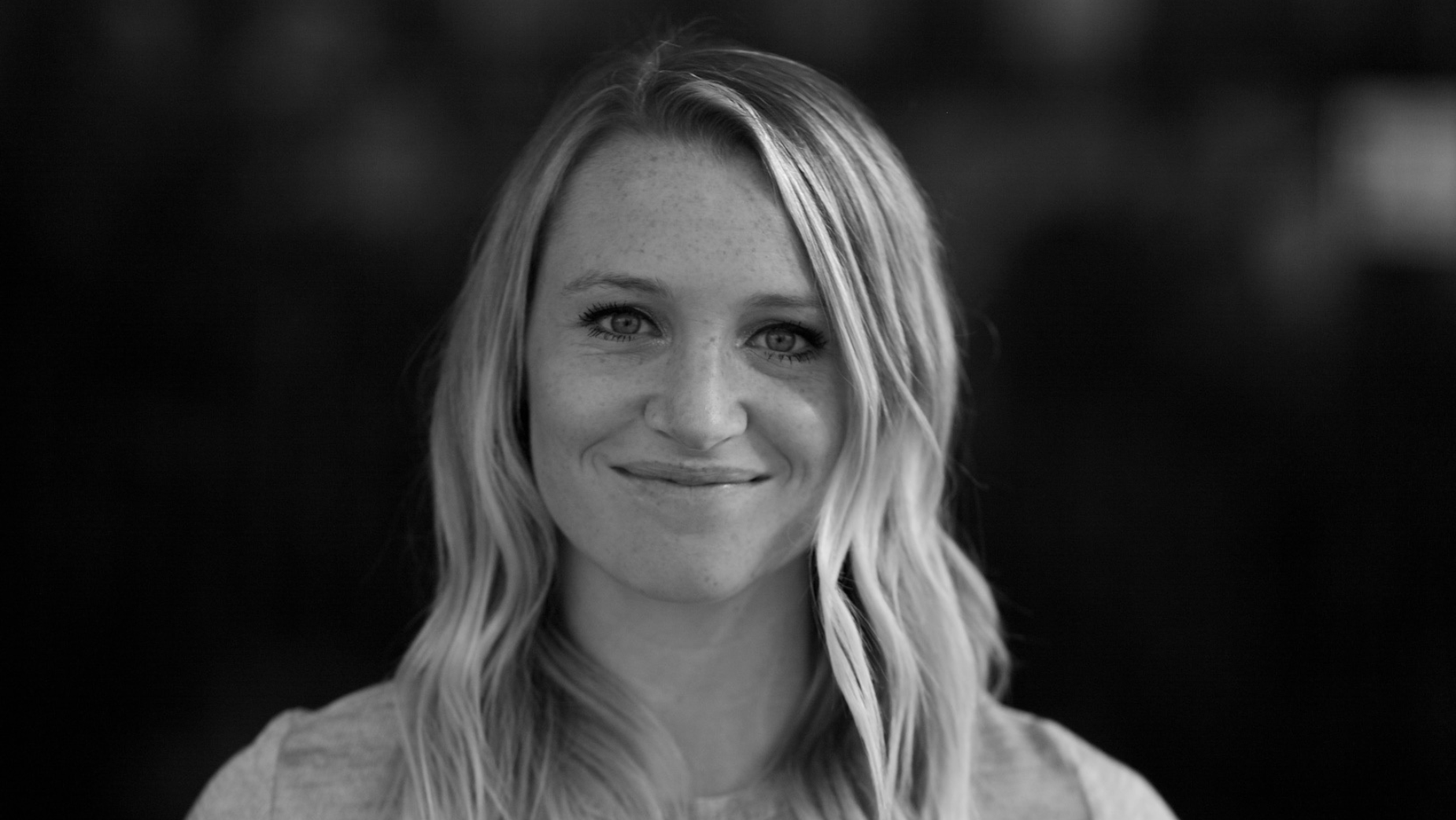
Producing Tomorrow's Producers: Spreadsheets, Soft Skills and Shoots with Libby Orrett-George

Libby Orrett-George is head of post production at Creep, the full service post production studio in Fitzrovia. Libby's background in design, combined with past roles in account management and production at creative agencies, has led to her obsession with combining the finest visual craft with rigorous process and excellent client servicing.
Libby has produced content for brands such as Aston Martin, EE, and Mars, and since joining Creep in 2021, she has led their rising growth within the longform VFX world, where in the past 18 months they have been the lead vendor across multiple Netflix, ITV and Apple TV shows.
LBB> What advice would you give to any aspiring producers or content creators hoping to make the jump into post production?
Libby> Being a post producer is all about having great soft skills that you combine with technical knowledge and a creative eye. Be confident with your communication and organisation skills; meet people, ask questions, make spreadsheets and research the tools that form the basis for post production work.
Learn and understand the pipeline. The post-production process can sometimes feel overwhelming when considering all the individual parts, so start by familiarising yourself with the route a project takes from shoot to delivery; offline edit, colour, VFX, online. At each stage there are specific roles and tools utilised. This is the most useful avenue toward understanding post as a whole.
Figure out your skill. There’s no need to choose a ‘niche’ too early, but knowing what makes you tick will act as an engine when sifting through the mountainous world of post-production. Do you like detail, organisation, creativity, people, teamwork? Find out where your skills are most needed and use that as a beacon.
And of course, have an appreciation for the final product. Watch movies, tv, short films, music videos…content, content, content! Be engaged, mesmerised and inspired.
LBB> What skills or emerging areas would you advise aspiring producers to learn about and educate themselves about?
Libby> Two letters on everyone’s lips: AI. There’s mixed feelings about it in the industry, understandably, but we can’t deny it’s here to stay. Staying up to date with what’s happening on the front lines, learning about new tech and new applications will allow you to stay nimble and dynamic in your own work as a post-producer. There’s a lot of grunt work in post that AI will allow us to streamline; managing and organising files and assets, rotoscoping, and lots more will be lost for the sake of progress. Good or bad, it’s happening and you’ll want to get on board.
Before getting tangled in the AI debate, learn how outputs inform the process. Commercial differs from social, which differs from long-form. These differences are important as process is king in this world. You don’t need to be encyclopaedic in your knowledge, but you do need to know where to find answers and how to adapt to different workflows.
LBB> What was the biggest lesson you learned when you were starting out in post production - and why has that stayed with you?
Libby> Post is incredibly technical, so I was quite overwhelmed with the yawning gaps in my knowledge when I first started. What helped me was to realise that knowing where to find information is more important than the memorisation of information itself. Your knowledge base will grow with experience, but there’s so much ground to cover that what matters more is that you aren’t paralysed by not knowing the answer to something. Know who to ask for help when the operators start throwing technical gobbledygook at you!
Thorough notes, understanding why and when something needs to happen, and what impact it has on the next step in the process, helps to quickly build a foundation in post and provide a better grasp for the more complex elements. Being enthusiastic, open to not knowing everything, but diligent about understanding the details of each new element you encounter, builds technically strong producers who can make creative decisions easier, and collaborate with both clients and artists with more ease and enjoyment.
LBB> When it comes to broadening access to production and improving diversity and inclusion what are your team doing to address this?
Libby> We always post our job vacancies in groups and channels that actively feature diverse groups and those from minority backgrounds. We try to meet as many different types of people as possible when interviewing for full time roles, and with our freelancers, we work with a large variety of ages, genders and nationalities. We work hard to hire the right people for the job, to ensure it’s a positive experience for both parties.
Certain roles are often male dominated - VFX artists for example - so we’re constantly connecting with female artists who may find it harder to break into the field, and our sister production company Vigilante often hires all female crews for shoots.
We have just finished our first year working with the Social Mobility Foundation, an amazing organisation which supports getting high-achieving young people from low-income backgrounds into the top universities and professions. I mentored a sixth form student who was passionate about getting into the creative industry, giving guidance on their next steps and potential university courses, helping them to understand more about their options within the industry. We hope to provide more opportunities like this as we grow.
LBB> And why is it an important issue for the production community to address?
Libby> In this industry, we make a huge range of content for all audiences. So it’s essential that diversity of voices and contributing to this content, so it’s a truer, richer experience for us all.
This industry is a loyal one, and success is often determined by making and maintaining strong relationships with your peers. This is great if your background has afforded you connections willing to open doors for you, however, this can act as a barrier to those from different backgrounds. This is why the industry as a whole has to be self-aware and conscious of these barriers in order to reach out and connect with those not afforded the head start others have.
LBB> There are young people getting into production who maybe don’t see the line between professional production and the creator economy, and that may well also be the shape of things to come. What are your thoughts about that? Is there a tension between more formalised production and the ‘creator economy’ or do the two feed into each other?
Libby> I think this blossoming and exciting form of production has demonstrated its own value and effectiveness, however I think the two can inform each other. Traditional production mechanisms, while perhaps less free and nimble, affords creators access to scale.
There are lots of talented content creators out there who are creating beautiful work, often as one or two-person productions. Their agility and economy is something lots of businesses can learn from, however some ideas require the collaboration and resources only traditional production can offer. Scale necessitates infrastructure, tried and tested workflow, QCs and technical knowledge; all the sexy stuff. It’s certainly a slow moving beast and maybe less pure, but the ceiling’s the limit and the possibilities are endless.
LBB> When it comes to educating producers how does your agency like to approach this? (I know we’re always hearing about how much easier it is to educate or train oneself on tech etc, but what areas do you think producers can benefit from more directed or structured training?)
Libby> When production assistants join the company we give them resources to read and watch, to help them build up their technical knowledge of post - but our approach at Creep really is you get out what you put in, and we very much believe in learning by doing.
As a company we try to be brave and go after projects that challenge us, and we encourage our individuals to do so also. We give production assistants exposure at all levels and get them running their own small jobs as soon as possible, encouraging them to venture outside of their comfort zones, knowing they’ll always have the support of the wider team when they need it. We reward proactivity and curiosity and aim to create an environment where people aren’t scared to ask questions or try something different.
LBB> It seems that there’s an emphasis on speed and volume when it comes to content - but to where is the space for up and coming producers to learn about (and learn to appreciate) craft?
Libby> It’s true to say that while timelines shrink, deliverables grow, however, there’s still a lot of crafting happening out there. If anything it’s forced teams to be more creative and more adaptable. Even in content with break-neck turnaround times, we find the briefs are written and approached with the best creative intentions.
We will always prioritise serving these intentions and striving to create the best possible product. When there are time or budget constraints, sometimes it can encourage a producer to think in even more creative ways, building their skillset and further serving the project.
LBB> On the other side of the equation, what’s the key to retaining expertise and helping people who have been working in production for decades to develop new skills?
Libby> While the mechanisms of the industry may evolve over time, the core tenants of producing remain the same. Be open minded, ask questions, be comfortable not knowing everything. Those with decades under their belts will have the experience to know the value of constantly learning and evolving. Attention to craft and good relationships with your peers and clients will always be at the heart of what we do, and will also motivate an individual’s progression in producing.
LBB> Clearly there is so much change, but what are the personality traits and skills that will always be in demand from producers?
Libby> Whatever changes happen in the post industry, those soft skills I talked about at the beginning will always be essential. In my mind, a good post producer is personable, organised, consistent and reliable. A great post producer is all of those things and more; they are resilient, adaptable, inquisitive, don’t take themselves too seriously and don’t mind a good lookin’ spreadsheet.















